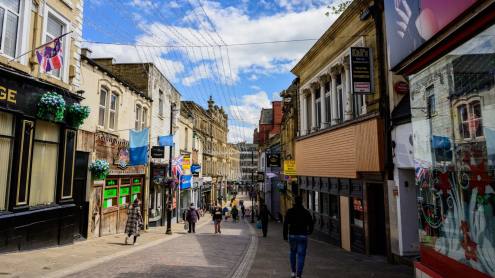Banks around the world are declaring their commitment to sustainability. Yet, often environmental and social data prove just how far they are from taking action. Look at deforestation — in the Brazilian Amazon, the annual rate reached a 12-year high in 2020, with 11,088 km2 lost to deforestation. This is an area seven times that of São Paulo or London. It is also 182% the annual deforestation target prescribed by local law.
Fingers have rightly been pointed at Brazil’s president, Jair Bolsonaro. On taking office in 2019, he promptly made sure the world knew that the Amazon was open for business. Only after much criticism and international pressure did the word “sustainable” start being used when discussing foreign investment into the country.
But even under a Bolsonaro administration, much more can be done by the private sector, including banks. Although Itaú Unibanco, Bradesco and Santander Brasil’s joint initiative to reduce deforestation is laudable, without the buy-in of Banco do Brasil, the country’s largest lender to, and investor in, companies at risk of causing deforestation, it also risks being toothless. Banco do Brasil is a state-owned bank; although it responds to the government, it also, inevitably, must respond to the market. Greater local and international pressure would help.
Foreign banks must reflect on their actions too. If the Amazon is the world’s so-called ‘lungs’, not just Brazil’s, international players are responsible for its future as much as their local peers.
Last year, environmental groups found that European banks who were vocally committed to environmental, social and governance (ESG) principles were financing exports of Amazon oil to the US — ING, Credit Suisse, UBS, BNP Paribas, Natixis and Rabobank were the largest European financiers. The Amazon oil industry has a dire environmental and social track record. To their credit, BNP Paribas, Credit Suisse and ING have since committed to exiting that space. Others, according to Stand.earth and Amazon Watch, are simply filling the gap, however.
Environmental groups’ research continues to prove effective in raising awareness, and shaming bad actors and their clients into action. Banks, local and international, may want to consider covering wider and deeper ESG ground, and act before they become the object of the next embarrassing report — currently due in the second half of 2021.












